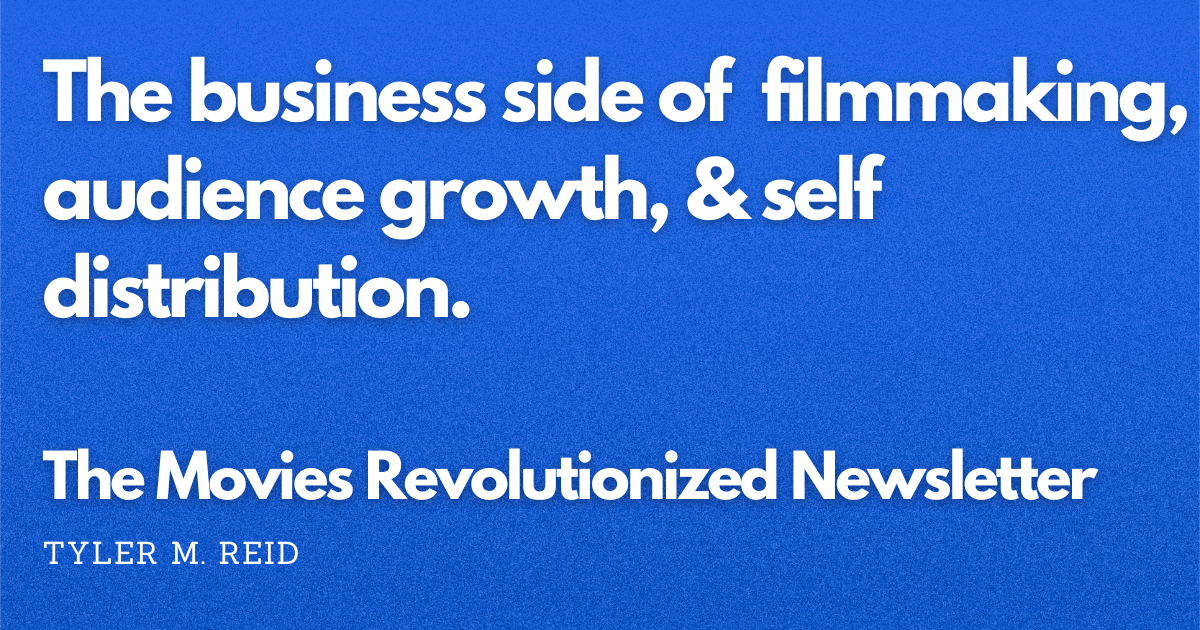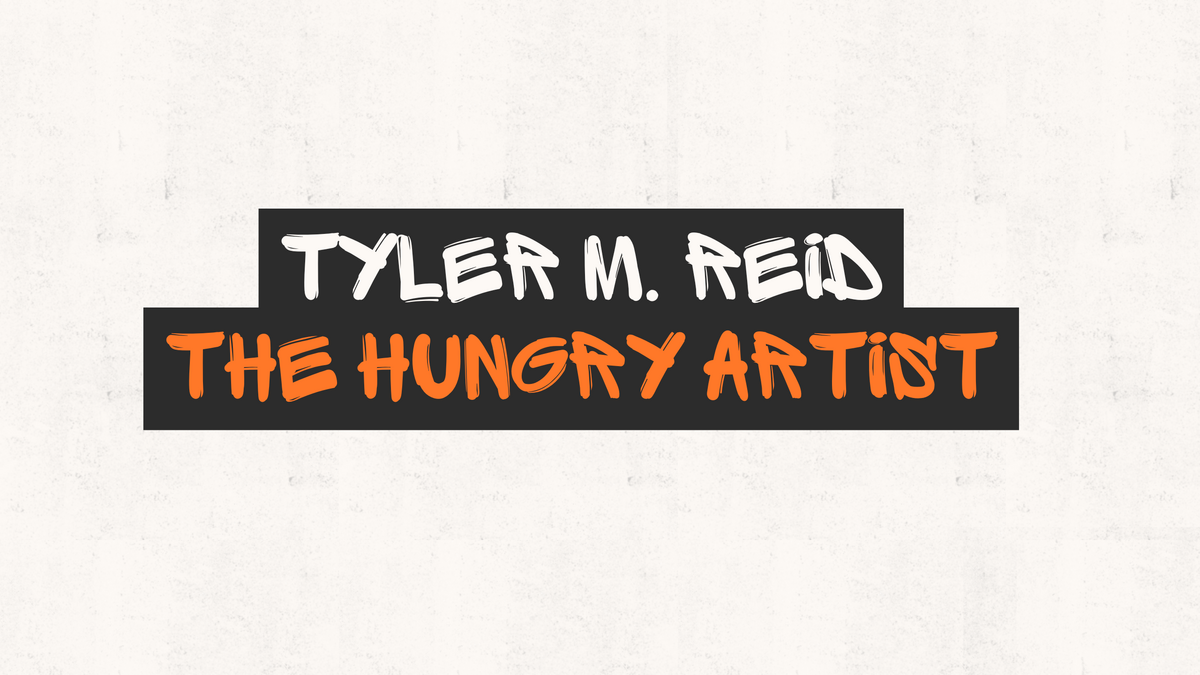I Made One Movie, Now Let’s Make Another
I made my first short film over 20 years ago, it did well, won a couple little awards at a little competition in a little city. Then I wanted to make my next short film. And I was thinking about a feature film (thank goodness that didn’t happen because I was NOT ready…even though I believed I was). Many of you do the same and think the same as me 20 years ago. Make a project. Now figure out the next project and make that project.
One of the things we don’t do is think about a strategy for the long term goal of a career as a filmmaker. I think the reason why we don’t think about a strategy in a career in filmmaking because we believe our films will be great, we’ll win lots of awards and we’ll get paid lots of money to make big films we love. The reality is, that rarely happens.
As a tactician you are only focusing on making one movie at a time. As a strategist you are thinking about how each movie will work in your entire career.
A career as a filmmaker may be more than just making movies too. When you are making one movie you want to think about how that movie will help you in other parts of your career. Maybe it can help set you up to also be an occasional commercial director or even music video director. Maybe you want to journal and film BTS of every aspect of the movie so that way you can use it as a workshop case study for other aspiring filmmakers.
The reason I say this, is that just making movies may not provide enough of a salary for you to pay your bills so that you can keep making movies. The movie is only one tactical part of the entire career. Which is why you want to think about the strategy for your whole career and not just one movie at a time.
Most Screenwriters Don’t Write Screenplays
Let’s get more specific here about being tactician verses a strategist. I want to look at screenwriters. I think most people would assume that if someone said they were a screenwriter then that meant that person makes a living writing and selling their screenplays.
The reality is many screenwriters spend a significant amount of their time on projects other than selling scripts or having their original scripts produced. Instead, they often engage in rewriting, polishing existing scripts, or working on multiple projects simultaneously.
Let’s look at some statistics.
It's reported that less than 5% of registered scripts actually get produced. On top of that only about 1-2% of aspiring screenwriters can make a full-time living solely from writing scripts. This reality leads many writers to focus on revising and fixing scripts, whether they're their own or others' works.
The industry has shifted away from the old studio system where writers worked as full-time employees on multiple projects. Nowadays, most screenwriters are hired on a project basis. This has led to a landscape where writers often juggle various assignments, which can include fixing scripts for established productions. With the rise of streaming platforms and the demand for more content, studios are increasingly looking for screenwriters to fill roles that involve not only original writing but also development and script revision. This increased demand contributes to the prevalence of writers working on a variety of projects rather than solely focusing on selling original scripts.
Let’s dive even deeper and look at more tactical approaches for a screenwriter’s career strategy.
Ghostwriting: Screenwriters may be hired to write scripts or sections of scripts under someone else’s name, often for high-profile projects or established writers.
Script Doctoring: This involves revising existing scripts to improve dialogue, pacing, or overall structure. This work can be vital in elevating a screenplay and is often done without public acknowledgment. *Find a Carrie Fisher example below.
Polishing: Screenwriters might be brought in to refine specific scenes or dialogues. This can include tightening the script, enhancing character voices, or making adjustments to meet production needs.
Rewriting: This role involves substantial changes to the script based on notes from producers, directors, or studios. It often requires the screenwriter to understand the original vision while implementing new ideas.
Adaptation: Turning books, plays, or other media into screenplays is a significant part of many screenwriters’ careers. This can include altering narratives to fit the film format while retaining core themes.
Consulting: Some screenwriters work as consultants, offering insights on script development, character arcs, or story structure without necessarily writing any content themselves.
Franchise Writing: Writers may work on existing franchises, creating scripts that fit within established universes while bringing fresh ideas and narratives.
Character Development: In addition to writing scripts, screenwriters often help in crafting backstories and character arcs that deepen the narrative, sometimes working closely with directors or producers.
Writing for Different Mediums: Some screenwriters diversify by creating content for television, web series, or even video games, adapting their skills to suit different formats and audiences.
Workshops and Mentorship: Experienced screenwriters may conduct workshops, teaching others about the craft and sharing their expertise, sometimes focusing on areas like dialogue or character development.
Like being a filmmaker, director, producer, writer…you may think you make that one project and move on to the next project of yours. However, a stronger strategy would be to look at how the project you are working on now could also get you stable work in other areas while still working in your career path. That stable income and work allows you the opportunity to keep writing and pitching your own screenplays or keep making your own films.
Carrie Fisher’s Wishful Drinking
When I was on paternity leave with my 2nd son I gave myself a goal of reading two books a week, one of those books was Carrie Fisher’s Wishful Drinking the thing that stuck out to me most was her work as a script doctor. Which I never knew and which she never got much screen credit for.
One notable anecdote is her work on Sister Act. The film’s producers brought her in to polish the script, particularly focusing on the dialogue. Fisher approached the project with her characteristic humor and insight, injecting the script with clever lines and relatable character interactions.
I got intrigued to see what else she had worked on:
The Wedding Singer (1998): Fisher was brought in to help punch up the dialogue, particularly focusing on the comedic elements that would resonate with audiences.
Hook (1991): She provided uncredited writing assistance, helping to refine the script and enhance character dynamics, especially the dialogue involving Peter Pan and his family.
Outsiders (1983): Fisher contributed to this adaptation, working on script revisions to improve the character interactions and overall narrative flow.
RoboCop 2 (1990): Fisher was involved in script revisions to help tighten the story and enhance character development.
The Blues Brothers (1980): Though she wasn't credited, Fisher provided input on the screenplay, helping to sharpen the dialogue and character motivations.
Last Action Hero (1993): She was also involved in uncredited rewrites, contributing to the film’s comedic elements and character interactions.
The other key here I want you to take away is that it is uncredited work. It’s work that pays the bills but also keeps you in your industry and probably most importantly, keeps you practicing at your craft.
That is where a lot of filmmakers fail. They are focused on that single film at a time that it does not allow them to keep consistently practising at their craft and usually means they have to take a pause from making films to find work outside of their industry to pay the bills.
Think about the long run strategy and the work you can do that will allow you to keep practicing and getting better.
There are two ways I can help you.
I give away a free bundle with example pitches, templates, and interactive budgets that you can grab right here.
If you are on your journey to make your first short film, documentary, or even micro budget feature, this course is designed to help you find money, grow your audience, and earn an income.


